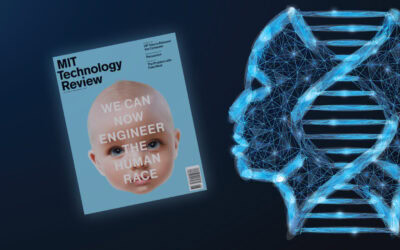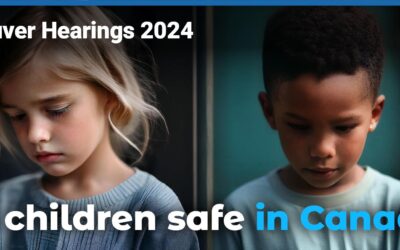The following article is a joint collaboration between Michelle Perro, MD (Executive Director) and Stephanie Seneff, PhD (MIT Research Scientist). In 2017, Dr. Perro and Dr. Adams produced the highly acclaimed book, What’s Making our Children Sick? with a focus on the effects of industrial food on children’s health, highlighting patients’ stories and victories. Dr. Seneff is the author of the about-to-be released, Toxic Legacy, which discusses how glyphosate continues to destroy our children’s health and the environment.
From the GMOScience Team:
This editorial focuses on a different, but equally chilling assault on our children’s health and will further our understanding of what continues to make our children sick. Experimental gene therapy vaccines including both mRNA vaccines and genetically modified DNA vector vaccines are concerning to physicians and scientists.
In 1998, a vaccine was released for infants against rotavirus, a contagious virus that causes diarrhea. Albeit unpleasant, this infectious disease is manageable at home with extra fluids. However, soon after the introduction of the vaccine, it was reported that some infants developed intussusception, a type of bowel obstruction particular to infants where the bowel telescopes in on itself, commonly occurring at the intersection of the small and large intestine. While infants may be quite ill, prompt intervention is curative in all but a few cases.
The risk for development of this bowel obstruction following vaccination was 20-30 times higher than what would be expected in a normal population and occurred within two weeks of the administration of the vaccine. The Centers for Disease Control (CDC), in collaboration with the Food and Drug Administration (FDA) as well as local agencies, quickly intervened and halted the usage of this vaccine. Two emergency investigations were instituted showing that the vaccine increased the risk for intussusception by one to two cases among 10,000 infants who received the vaccine. In response, the manufacturer voluntarily withdrew the rotavirus vaccine from usage in 1999.
The CDC claimed that the decision to remove the rotavirus vaccine was due to the fact that intussusception is a serious condition and that the complications from a rotavirus infection in the US can be prevented by oral rehydration. The CDC states:
“…when a vaccine is discovered to have a serious side effect, a recommendation to continue using the vaccine will be reconsidered and the vaccine may be withdrawn, in spite of the beneficial effect of the vaccine to prevent disease.”
Twenty three years later…
It seems that, in the context of the COVID-19 pandemic, caution has been thrown to the wind. So much about 2020 and the pandemic related to SARS- CoV-2 is unprecedented. In addition to an unprecedented disease and its global response, COVID-19 has also initiated an unprecedented accelerated process of vaccine research, production, testing, and public distribution.
The sense of urgency around combatting this virus led to the creation, in March 2020, of Operation Warp Speed (OWS), then-President Donald Trump’s program to bring a vaccine against COVID-19 to market as quickly as possible, skipping several steps in the normal evaluation process. In response, the National Institutes of Health (NIH) collaborated with the biotechnology company Moderna in bringing an altogether new type of vaccine against infectious disease to market, one utilizing a technology based on messenger RNA (mRNA). Another mRNA vaccine was also developed in parallel by Pfizer in conjunction with a small biotech company in Europe called BioNTech.
Both of these vaccines have been approved for emergency use by the FDA in record time, with little regard for the fact that this technology is experimental and unproven. Now there is an aggressive campaign to get these vaccines into the arms of as many US citizens as possible, also in record time. This is true not only in the US, but also increasingly on a global scale. Essentially, the entire world’s population are serving as guinea pigs in a massive experimental study, and there is clear potential for a great deal of harm.
The global mass vaccination rollout on the world’s adults has now extended its hand into the arms of children. Initially, 16 year olds were encouraged and in some instances, ‘mandated’ to receive the experimental therapy. The age limit has now been decreased to 12 year olds, and imminently 5 year olds and younger are being targeted as the next ‘at risk’ populations. Children have almost zero risk of dying from COVID-19, and it is almost certain therefore that the risk/benefit ratio of these vaccines is too great to warrant their use on children.
Misnomer, Misstep and Myocarditis
Myocarditis is a condition caused by inflammation of the heart muscle, and it has been commonly attributed to viruses, drugs or other inflammatory agents. The heart can be mildly to severely affected, causing potential heart failure and arrhythmias. Additionally, it can be an autoimmune process and rogue antigens can precipitate its development. The innate immune system and specific cytokines (Th 17) can be drivers of further destruction. The incidence of myocarditis is uncertain, but it is uncommon and may affect only 1 per 100,000 children. Truly understanding this rare event in children can be difficult due to diagnostic challenges. It has been postulated that autoimmune myocarditis might be one of the reasons for sudden death reports following the mRNA vaccinations. Unlike other regenerative cells such as liver cells, heart muscle cells do not regenerate. Long term effects from cardiac inflammation have unpredictable consequences. Of significance, this type of information would have been revealed in a normal vaccine trial.
An awareness for a possible link between the mRNA vaccines and myocarditis started to appear on several fronts beginning in early May. In a statement issued on May 17, 2021, ACIP (the CDC’s Advisory Committee on Immunization Practices) stated that there were relatively few reports of myocarditis, which were more common in males, following the second dose, and symptoms were generally mild. However, the following week on May 24, 2021, the same committee stated that there was a higher number of observed cases of myocarditis and pericarditis in 16-24 year olds. Two days later, an investigation was launched involving 18 hospitalized vaccinated teens in Connecticut with heart inflammation.
Furthermore, in a multi-organizational report from the journal Pediatrics, seven cases of acute myocarditis/myopericarditis were reported in healthy male teens, all within four days of having received the second dose of the Pfizer vaccine. Six of the 7 boys had no evidence of prior infection with COVID (negative SARS-CoV-2 nucleocapsid antibody assay). Of concern, all the teens had elevated troponin (evidence of ischemic or inflammatory myocardial injury). They are all reported to have recovered with treatments aimed at inflammation (steroidal and non-steroidal drugs and immune globulin). However, the paper states, “…No causal relationship between vaccine administration and myocarditis has been established. Continued monitoring and reporting to the Food and Drug Administration (FDA) Vaccine Adverse Event Reporting System (VAERS) is strongly recommended.”
As reported by Children’s Health Defense on June 15, 2021, The VAERS database contains 900 cases of myocarditis and pericarditis across all age groups, following COVID vaccines during the time window between Dec. 14, 2020 and June 4, 2021. All but 32 of these cases followed administration of an mRNA vaccine. Sadly, the CHD story showcased a 19-year-old woman who died from heart failure following vaccination.
Possible Mechanisms
While the paper cited above denied that a causal relationship between the rare cases of myocarditis and the vaccines had been found, there is considerable literature on both SARS- CoV-2 and on the mRNA vaccines that explains a very plausible causal mechanism.
The mRNA vaccines are made up of many lipid nanoparticles, each of which packages up messenger RNA coding for the spike protein that is normally produced by the virus. The mRNA in the vaccines has been engineered to resist degradation, and also to produce spike protein at a much greater rate than the original virus version does. Although this was unexpected, it has recently been demonstrated that spike protein can be detected in the blood of people vaccinated with an mRNA vaccine as early as one day after their first administered dose, and that it remains detectable for up to two weeks.
It had been known as early as 2005 that the original SARS-coronavirus binds to ACE2 receptors as a step towards gaining entry into cells, and that it is specifically the spike protein, which makes up the majority of its protein coat, that binds to the receptors. These same authors also showed that the spike protein by itself worsened acute lung failure in infected mice. They proposed that spike binding to the ACE2 receptors disabled their normal function in the renin-angiotensin pathway, resulting in damage due to an acute inflammatory response.
Like SARS-CoV, SARS-CoV-2, the virus responsible for COVID-19, also binds the ACE2 receptors, except that its binding affinity is ten to twenty-fold higher than that of its predecessor, and its binding to the receptor also disables the normal function of ACE2. Maruhashi and Higashi argued in a peer-reviewed paper that decreased ACE2 expres- sion in endothelial cells could be pivotal in the observed cardiovascular sequelae in patients suffering from COVID-19.
A study by Nuovo et al. demonstrated that, if the S1 subunit of the spike protein by itself was injected into the tail of mice, it induced endothelial cell damage in their blood vessels. These authors wrote: “It is concluded that ACE2 plus endothelial damage is a central part of SARS-CoV2 pathology and may be induced by the spike protein alone.” Endothelial dysfunction and endothelial damage are well established predictors of congestive heart failure.
Ominously, the version of the spike protein coded for by the vaccines is different from the one produced by the virus in a highly significant way: it has been engineered to be disabled in its ability to change its shape following attachment to the ACE2 receptors, a necessary step to allow it to fuse with the plasma membrane and gain entry into the cell. This was achieved by changing the code for a pair of adjacent amino acids in the fusion domain of the spike protein to two proline residues. Their logic in doing this was that it would allow this important part of the protein to be highly exposed to the immune cells to afford easier production of antibodies, the only goal of the vaccination procedure. However, this would also mean that the spike protein would remain attached to the ACE2 receptors. It has been shown that a complex consisting of the S1 component of the spike protein attached to ACE2 receptors gets detached from the membrane by enzymatic action, and this of course completely disables ACE2’s function in the membrane.
There is no compelling need for a vaccine to protect children from COVID-19, as the death rate among children is vanishingly small. However, children do rarely experience a serious condition such as multisystem inflammatory syndrome from COVID-19 infection, where the child may develop generalized organ inflammation. This is treatable, however with well-established safe medications. For example, there is excellent data showing how ivermectin (an antiparasitic drug made from a bacterium Streptomyces avermitilis) can dock in the region of two of the amino acids (leucine and histidine) of the ACE2 receptor and interfere with the attachment of the spike protein to the human cell membrane. Many other studies have shown that this drug has been used successfully in the prevention and treatment of SARS CoV-2 infections. There has been an exclusion and obfuscation of the various therapeutics available to be used against this viral infection. The suppression of information about the prevention and treatment with other modalities including pharmacologics that are safe for children and natural supplements is an equally criminal issue to be discussed at a future date.
Logic Lost
The CDC has now confirmed 226 cases of myocarditis after the COVID vaccine in people aged 30 and younger, with 250 more reports pending. Across all ages, 789 cases of heart inflammation have been reported after the Pfizer and Moderna vaccines. An emergency meeting will be held June 18, 2021 to discuss this issue. However, Dr. Yvonne Maldonado, chair of the American Academy of Pediatrics Committee on Infectious Diseases noted, “…there is no recommended change to vaccination of adolescents 12 and older.” Of note, in both original studies on the mRNA therapies from Pfizer and Modera, cardiac side effects were reported in their own research.
Planned Pediacide
In sum, we have imposed an experimental therapy on children for an illness to which they have essentially zero morbidity or mortality, have witnessed an explosion of disastrous health effects such as cardiac damage from this therapy, and are still proceeding with the vaccination march forward. Historically as evidenced by the rotavirus fiasco discussed earlier, just 8 cases of adverse health effects allowed an abrupt about face and halt of the usage of the vaccine. With the SARS-CoV-2 mRNA vaccine experiment, despite horrific consequences, there is an overt attack on children which can only be viewed as a planned pediacide. There is no rational reasoning for the continued assault on our children. Hence, there must be an immediate cessation of this genetic experiment on children and an investigation of those responsible for the global pediacide.
A View From the Front Line – Clinic Notes
Hyperbole? Rhetoric? Or real news from the front line? The true impact of our position can be witnessed in the clinic. Just this week, the majority of the patients I cared for involved managing effects from the CoV-2 vaccine. A 14 y/o who one week after the first Pfizer vaccine developed severe rhabdomyolysis, (characterized by the breakdown of skeletal muscle; which can be due to medications, viruses, trauma and exercise) was still symptomatic 3 weeks later. However, this patient had an unusual presentation with markers of autoimmunity and there is a role of autoimmune disease in children with this disorder. What is the role of the vaccine?
A 14 y/o male presented with a history of chest pain, severe myalgias (muscle pain), explosive diarrhea and vomiting the following day after the first Pfizer vaccine. The symptoms resolved and after the second dose of the vaccine, the symptoms returned, more aggressively, but resolved on their own. He has a history of childhood arrhythmias. His cardiologist felt that the vaccine had nothing to do with his symptoms and recommended no further evaluation. What is the role of the vaccine?
A 30 y/o dad received the J & J vaccine 1 month prior to his visit and developed a new onset of COVID 19 symptoms mostly involving loss of taste and smell. He tested positive for COVID on PCR testing. The mom was concerned about her nursing infant and toddler. She did not receive the vaccine due to her own history of cancer and was advised against it. What is the role of the vaccine?
These are real clinical situations. The formatted script is to deny vaccine culpability and offer no treatment other than supportive care. Those positions do not help the vulnerable populations we under oath have vowed to care for and protect.
(This clinical section is based on the personal experience of Dr. Perro.)
We are Not Alone in Our Concerns
Many medical professionals across the globe are sounding the alarm against a policy to vaccinate young children against COVID-19. In particular, members of a medical association called the Alliance for Portugal’s health have spoken out publicly against vaccinating Portuguese children against COVID 19, 100 Israeli doctors advise against vaccinating children, a letter signed by multiple doctors and scientists was written to the European Medicines Agency urging them to reexamine the safety issues of the COVID-19 vaccines, and the American Institute for Economic Research maintains the same position of vocal opposition to the injection of these unproven drugs into children’s arms.
Primum non nocere. The first rule of medicine: First do no harm.



